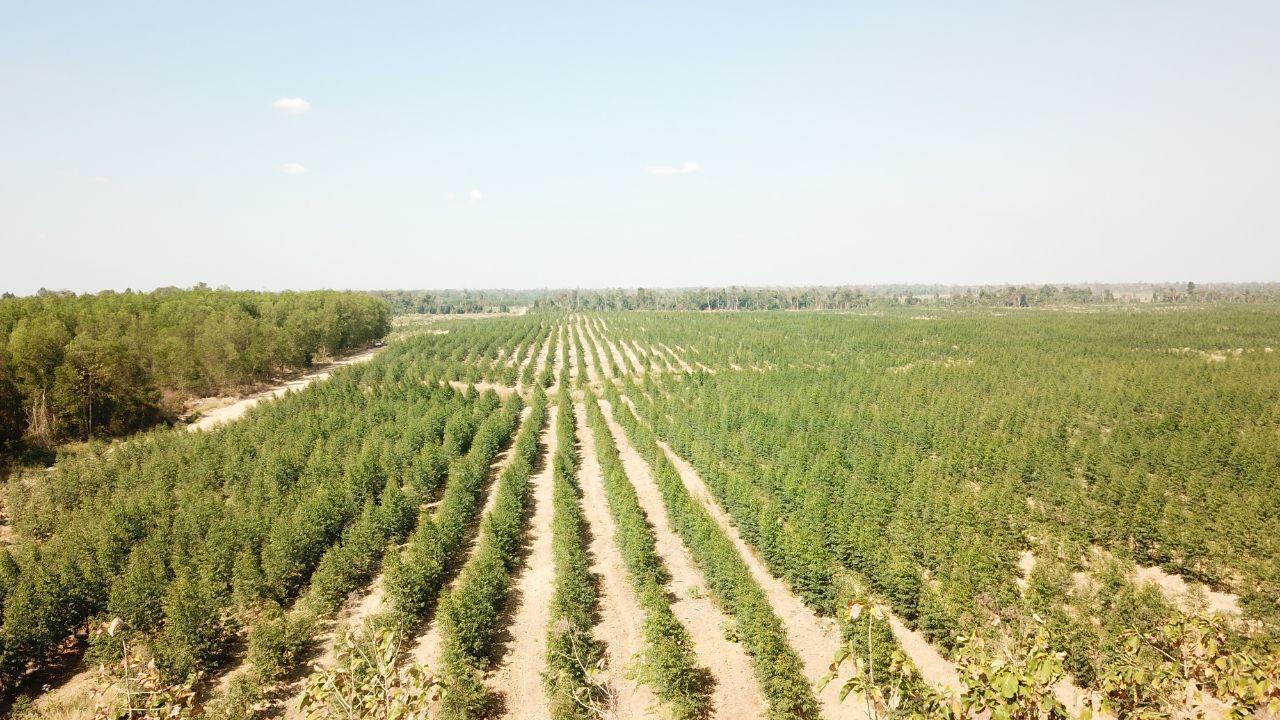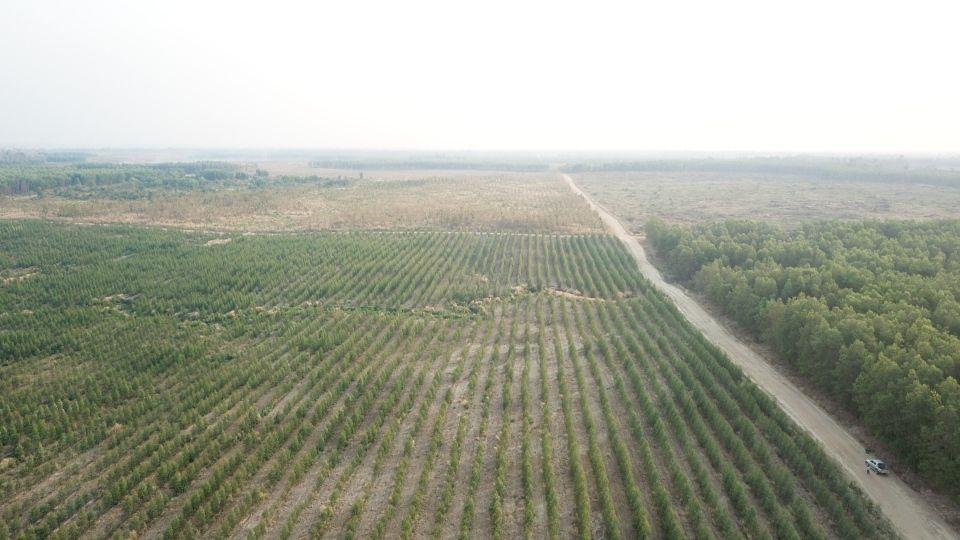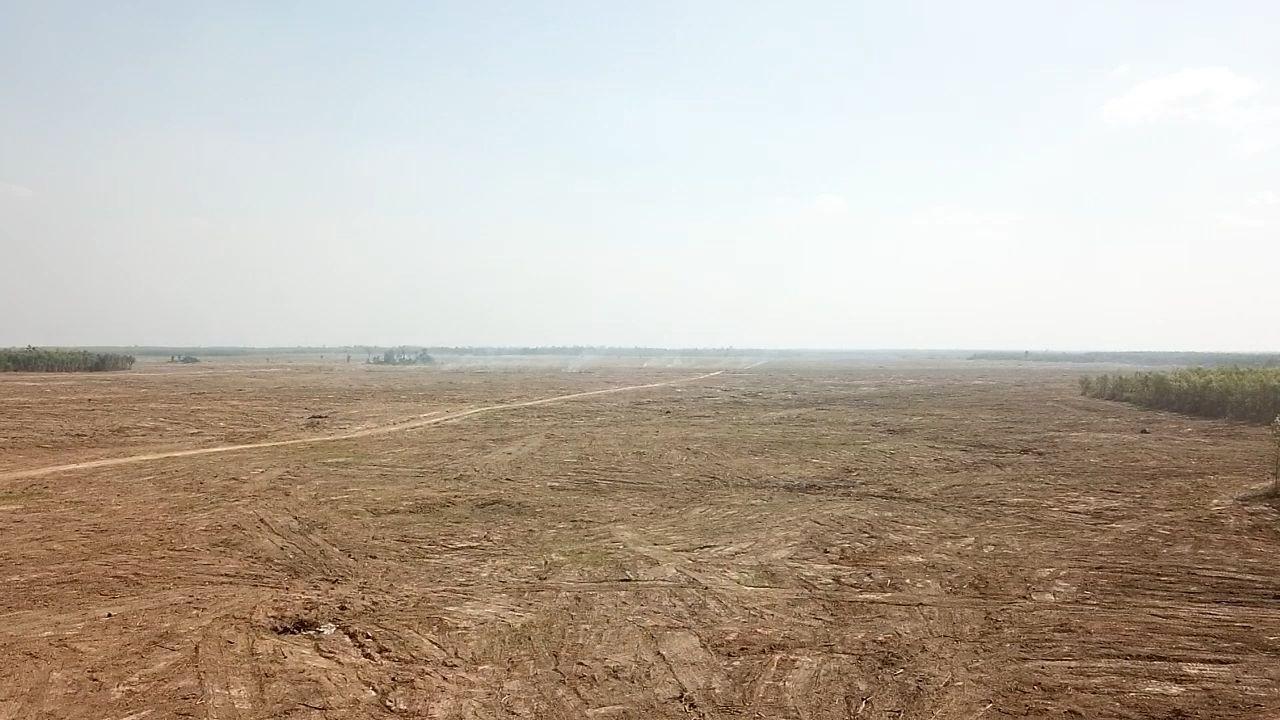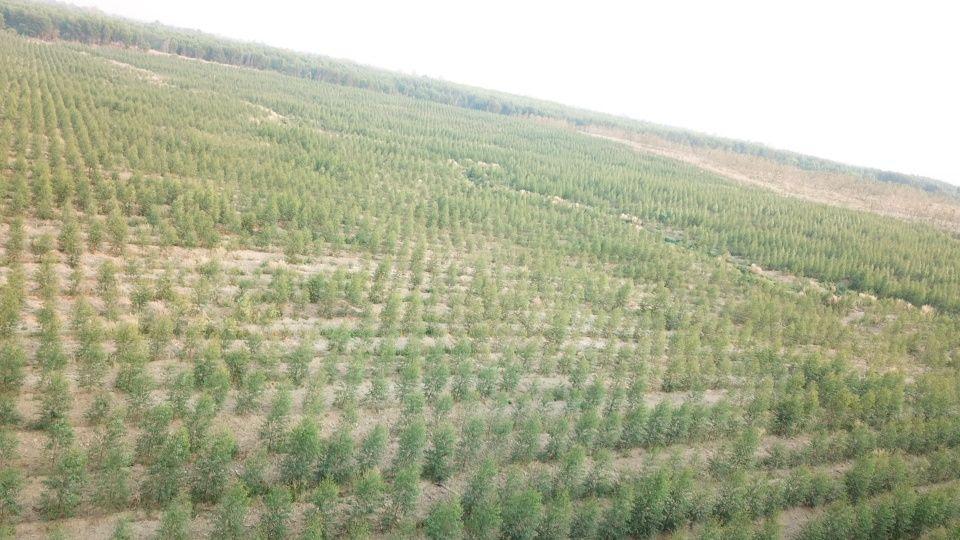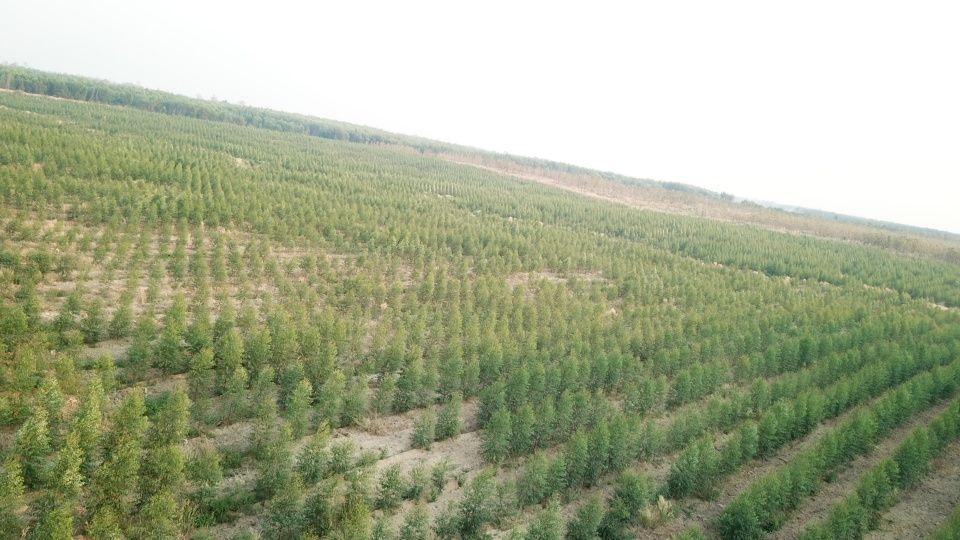Phnom Penh (FN), Jan. 11 - Lu Chhujang, CEO of the Think Bio-Tech (Cambodia) Co. Ltd and head of the Wood Processing Industry Association, said 10 January 2020 that “the development of Dam Tree Plantation offers valuable resources as raw materials for the wood processing industry, while Cambodia’s construction sector is booming, especially in Phnom Penh and Preah Sihanouk province, where high-rise buildings are being built.” “Following the company’s management change, Think Bio-Tech (Cambodia) Co. Ltd has developed its investment masterplan, in which a plan to plant more than 30 million young trees from 2020 to 2022 over 34,007 hectares in Beung Char Forestry Extension and Restoration Station under the cooperation with MAFF’s Forestry Administration is included.”
Lu Chhujang added that since November 2019, the company has begun to clear 5,000 hectares of forest land and plans to plant around 7 million young luxurious wood trees in May 2020 over the cleared land. Between 2021 and 2022, the firm plans to clear more 10,000 hectares of land each year and plans to plant a total of over 25 million young trees. CEO Lu Chhujang added that the company has signed a contract with Angkor Plywood to purchase 10 million young trees each year to comply with its investment plan, as latter firm has a tree breeding institute. He said that “the plantation may yield in the next 5 years, and the yields would be used as raw materials for the country’s red-hot wood processing industry. To the present, due to the country’s low productivity, Cambodia has imported processed wood abroad.”
The CEO continued that based on the soil survey over the licensed land, a 10,000-hectare plantation of Kapok trees would yield from 1.5 to 1.8 million cubic meters of wood. He also revealed his ambitions to enlarge the plantation, as he is seeking to enlarge more arable land and partnerships with community and private sector to plant more trees. He added that with the current demand, Cambodia needs at least 100,000 hectares of plantation, in which allows the company to harvest 20,000 hectares of land each year, in rotation, to curb the demand. Lu Chhujang added that “the plantation would create 100,000 jobs in the planting and harvest processes, as well as in the processing. As an example, Vietnam has earned thousands of million dollars every year from the export of such trees to the EU and has created jobs for its citizens.”
At the same time, he added that one year after the company’s management change, the firm has built around 100 kilometers of road to the markets – helping to reduce the time for traveling and transportation of farmers’ agricultural products to both local and nearby markets. Moreover, the company has built around 200 kilometers of road in the firm’s development area and is planning to extend it. Lu Chhujang added that “with the splendid infrastructure, it would help reduce the travelling time and cost.”
Think Bio-Tech (Cambodia) Co. Ltd obtained a legal license to plant industry wood over state’s forest under the cooperation with MAFF’s Forestry Administration as prescribed in the Councils of Ministers’ letter #999 s.c.n dated 12 August 2011, which allows the firm to plant trees over 34,007 hectares of land in Beung Char Forest Extension and Restoration Station in Kratie and Steung Treng’s Siem Bok district. Lu Chhujang said that to date, the company has completed planting 1.1 million young Kapok trees on 937 hectares of land, which was expected to yield in the next five years. He also stressed the firm’s effort to develop a Dam Tree Plantation for the Cambodia’s wood processing industry and to negotiate with the nearby local residents and communities with plenty of arable land to enter partnership the company – a good way to create jobs and raise their living conditions. He was also looking for other partners to invest in the plantation.
When asked about the Dam Tree Plantation in Cambodia, Neth Pheaktra, Secretary of State and Spokesperson for the Ministry of Environment, showed his full support of the project and said that the investment is very important as it would help reduce the uses of natural wood, and the creating of this wood processing industry would help create thousands of jobs and in turn increase the income of the local people, as well as the nation’s economic growth. He added that the plantation would serve as the most effective strategy to curb crimes of looting the nature and to help conserve Cambodia’s current natural resources. He continued that Cambodia has splendid natural resources and biology diversity.
Forest covers around 50% of the total Cambodia’s land area – the highest rate in ASEAN. Up to now, the government has increased the conservation forest area under the jurisdiction of the Ministry of Environment to up to 41% of the country’s total land area – amounting to some 7.2 million hectares of land, making Cambodia the second country with highest rate of forest area after Bhutan.
He added that due to the ministry’s effort to protect the natural resources, Cambodia is able to sell carbon credit in Keo Seima, Prey Lang (Steung Treng’s part), Southern Prey Kravanh , and Takai Wildlife Sanctuaries under the mutual market agreement and earn approximately 11 million US Dollars for continuing efforts to protect and conserve the forest, as well as to raise local community people’s living standard in compliance with Sustainable Financing principles.
